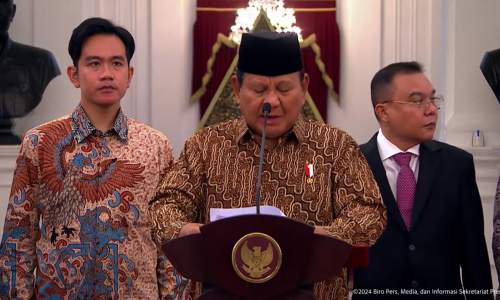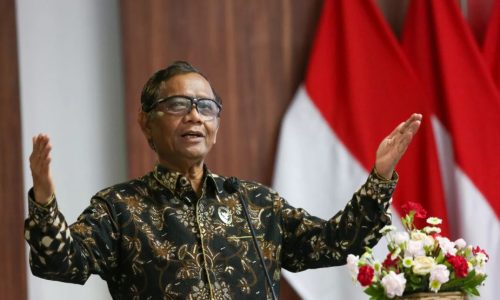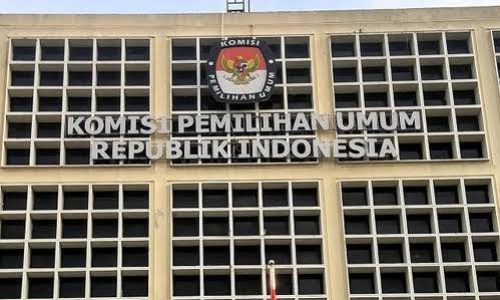President-elect Prabowo Subianto has unveiled a “synchronization task force” composed entirely of senior members from his Gerindra Party, signaling a move to ensure seamless transition from outgoing to incoming administration.
The task force, which mirrors a transition team in function if not in name, aims to bridge the activities of the current and future governments. The initial team of six, led by Gerindra’s executive chair Sufmi Dasco Ahmad, includes key party figures such as secretary-general Ahmad Muzani, treasurer Thomas Djiwandono, vice chairs Budisatrio Djiwandono, Sugiono, and Prasetyo Hadi.
Their first significant engagement was a meeting with Finance Minister Sri Mulyani Indrawati to assist in drafting the 2025 state budget, which will be presented by outgoing President Joko “Jokowi” Widodo in August 2024 and implemented by Prabowo upon his inauguration in October 2024.
At a press conference following the meeting, Sri Mulyani highlighted Thomas Djiwandono’s central role, fueling speculation that Prabowo’s 52-year-old nephew might be poised for a significant economic position in the new cabinet.
Despite the exclusive composition of the task force, Prabowo has reassured his coalition partners that their involvement remains crucial, and the team will focus solely on technical aspects of the transition.
The synchronization task force emerged after initial talks about forming a broader transition team stalled over disagreements on its leadership and composition.
With many parties from Jokowi’s administration set to join Prabowo’s government, it was believed that the transition would proceed smoothly without a formal team. However, the formation of this task force indicates otherwise.
Prabowo, who has faced increasing pressure from various political parties and interest groups vying for power, is also extending invitations to former opposition parties to join his administration.
The NasDem Party and the National Awakening Party (PKB) have agreed, while the Indonesian Democratic Party of Struggle (PDI-P) remains undecided.
To manage these competing demands, Gerindra has proposed a bill to amend the law on ministries, which currently caps the number of cabinet ministers at 34. If approved, this amendment would give Prabowo more flexibility in assembling his cabinet.
The introduction of the synchronization team highlights the tensions between the incoming and outgoing administrations. Disagreements over the transition team’s leadership reportedly arose after the presidential palace insisted that Jokowi should lead it.
As Prabowo prepares for his inauguration, the dynamics between him and Jokowi are expected to evolve, with the synchronization team marking the beginning of Prabowo’s independent governance.
An internal Gerindra source quoted by The Jakarta Post revealed that the task force is addressing both political and economic issues. The political team, led by Sufmi Dasco Ahmad, and the economic team, headed by Thomas Djiwandono, are in constant communication with current ministers to facilitate adjustments to the draft state budget and support Prabowo’s work programs.
Thomas has also been actively engaging with business leaders, recently participating in a forum organized by a US business association alongside his uncle Hashim Djojohadikusumo.
Apart from this task force, Prabowo has assembled a core team of experts from various sectors, including forestry, environment, defense, and economy, to inform his policy decisions. Notably, Sjafrie Sjamsoeddin, Special Staff to the Defense Minister for Defense Management, is part of this advisory group.
As the synchronization task force begins its work, Prabowo’s approach to navigating the transition and accommodating diverse interests will be closely watched by both supporters and observers.









